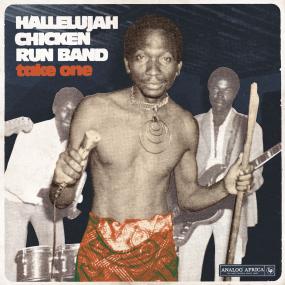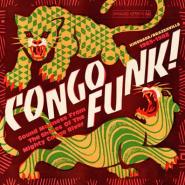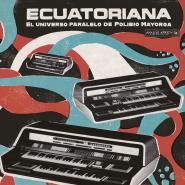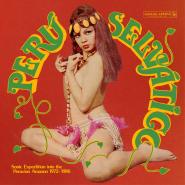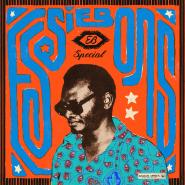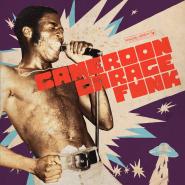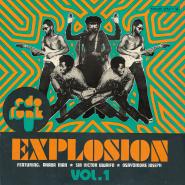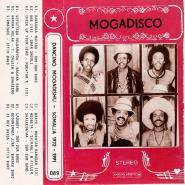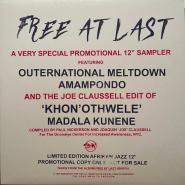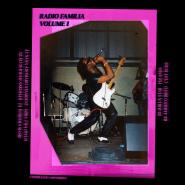TAKE ONE – HALLELUJAH CHICKEN RUN BAND by VARIOUS ARTISTS
| SKU | 115060 |
| Artist | VARIOUS ARTISTS |
| Title | TAKE ONE – HALLELUJAH CHICKEN RUN BAND |
| Label | ANALOG AFRICA |
| Catalog # | AALP 062 |
| Tag | |
| Release | W 49 - 2020 |
| Format | Vinyl - EULP |
| EAN Barcode | 4260126061415 |
| Import | |
| € 22,50 | incl. VAT, excl. shipping |
Tracks
- hallelujah chicken run band / Patrick Mukwamba - mudzimu ndiringe
- hallelujah chicken run band / Patrick Mukwamba - kare nanhasi
- hallelujah chicken run band / Elias Dzapati - tamba zimba navashe
- hallelujah chicken run band / Joshua Hlomayi & Thomas Mapfumo - ngoma yarira
- hallelujah chicken run band / Wilson Jubane - sekai
- hallelujah chicken run band / Lovemore Nyamasvisva - manheru changamire
- hallelujah chicken run band / Elias Dzapati - gore iro
- hallelujah chicken run band / Daram Karanga- mukadzi wangu ndomuda
- hallelujah chicken run band / Thomas Mapfumo - alikulila
- hallelujah chicken run band / Calisto Rupango - tinokumbira kuziva
- hallelujah chicken run band / Thomas Mapfumo - mutoridodo
- hallelujah chicken run band / Elias Dzapati - ndopenga
- hallelujah chicken run band / Lovemore Nyamasvisva - mwana wamai dada naye
- hallelujah chicken run band / Robert Nekati - chaminuka mukuru
Description
The band that modernised Zimbabwean music, and by doing so revolutionised the music industry in their country. Available for the first time on vinyl (180 gramms) with gatefold cover, and now all tracks fully remastered !
In 1972, the country of Rhodesia – as Zimbabwe was then known – was in the middle of a long-simmering struggle for independence from British colonial rule.
In the hotels and nightclubs of the capital, bands could make a living playing a mix of Afro-Rock, Cha-Cha-Cha and Congolese Rumba. But as the desire for independence grew stronger, a number of Zimbabwean musicians began to look to their own culture for inspiration. They began to emulate the staccato sound and looping melodies of the mbira (thumb piano) on their electric guitars, and to replicate the insistent shaker rhythms on the hi-hat; they also started to sing in the Shona language and to add overtly political messages to their lyrics (safe in the knowledge that the predominantly white minority government wouldn’t understand them).
From this collision of electric instruments and indigenous traditions, a new style of Zimbabwean popular music – later known as Chimurenga, from the Shona word for ‘struggle’ – was born.
And there were few bands more essential to the development of this music than the Hallelujah Chicken Run Band. The band came into being when a young trumpet player named Daram Karanga offered to assemble a group to entertain the workers at a copper mine in the town of Mhangura.
The original line-up – which included legendary singer Thomas Mapfumo, who would bring the sounds of Chimurenga to the world in the early 1980s with his band the Blacks Unlimited, and Joshua Hlomayi, one of the pioneers of mbira- style guitar – started out playing the Rumba and Afro-Rock styles popular in the capital. Although this was a hit with the white owners of the mine, the workers greeted it with indifference. But when they started adding electric arrangements of traditional Shona music to their repertoire, the audience went wild.
With the addition of “Zim” sounds to their arsenal, the HCR Band became unstoppable. Their reputation spread quickly and, in 1974, they were invited to the capital to compete in a national music contest organised by the South-African Teal label. Not only did they win the competition, but they also attracted the attention of famed producer Crispen Matema, who quickly organised their first recording sessions.
On their first day at Jameson House studios, they recorded half a dozen songs, including “Ngoma Yarira” and “Murembo”, two singles that would alter the course of Zimbabwean popular music.
During the next five years, the band would relocate from their small mining town to the capital city, go through numerous line-up changes and pay a few more visits to the recording studio, without ever losing the raucous urgency that had transformed them from popular entertainers into titans of Zimbabwean culture.

